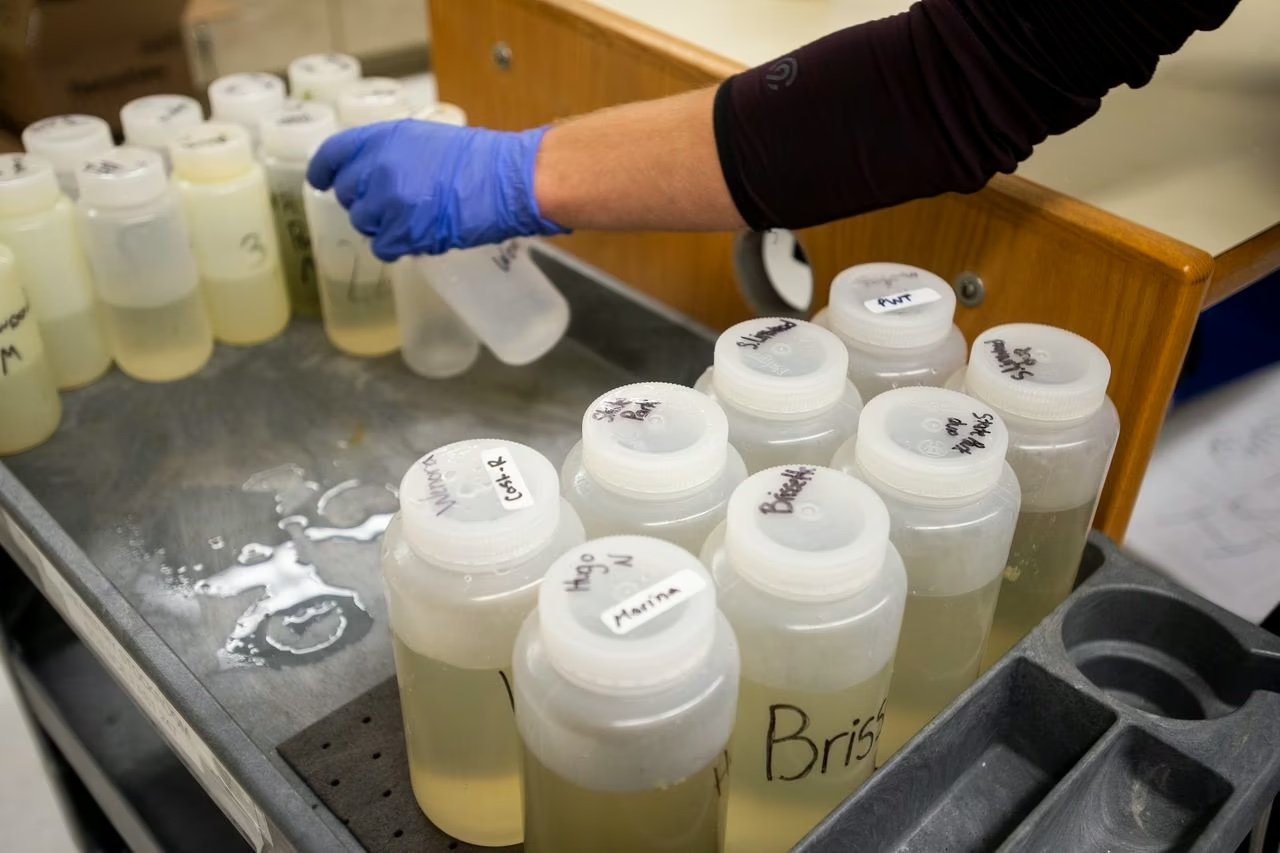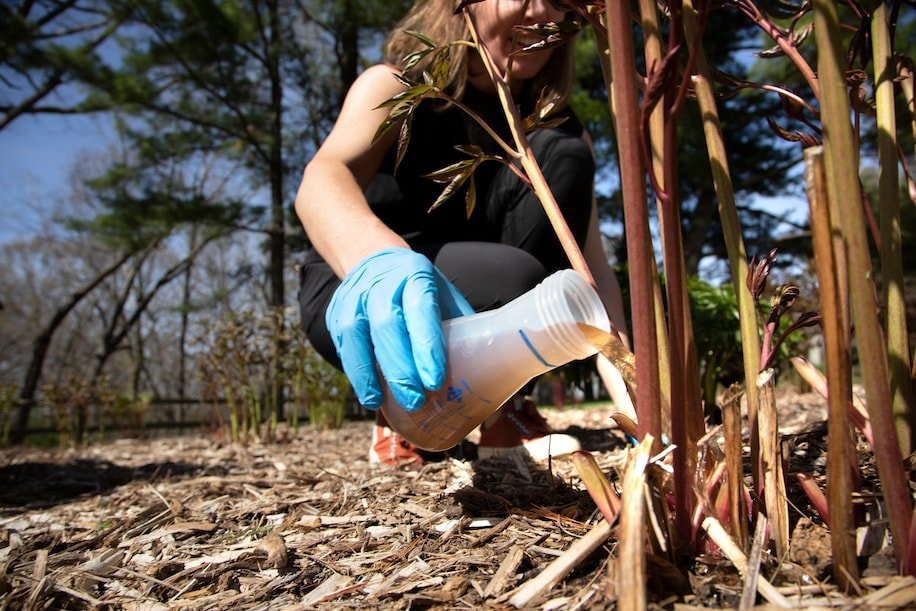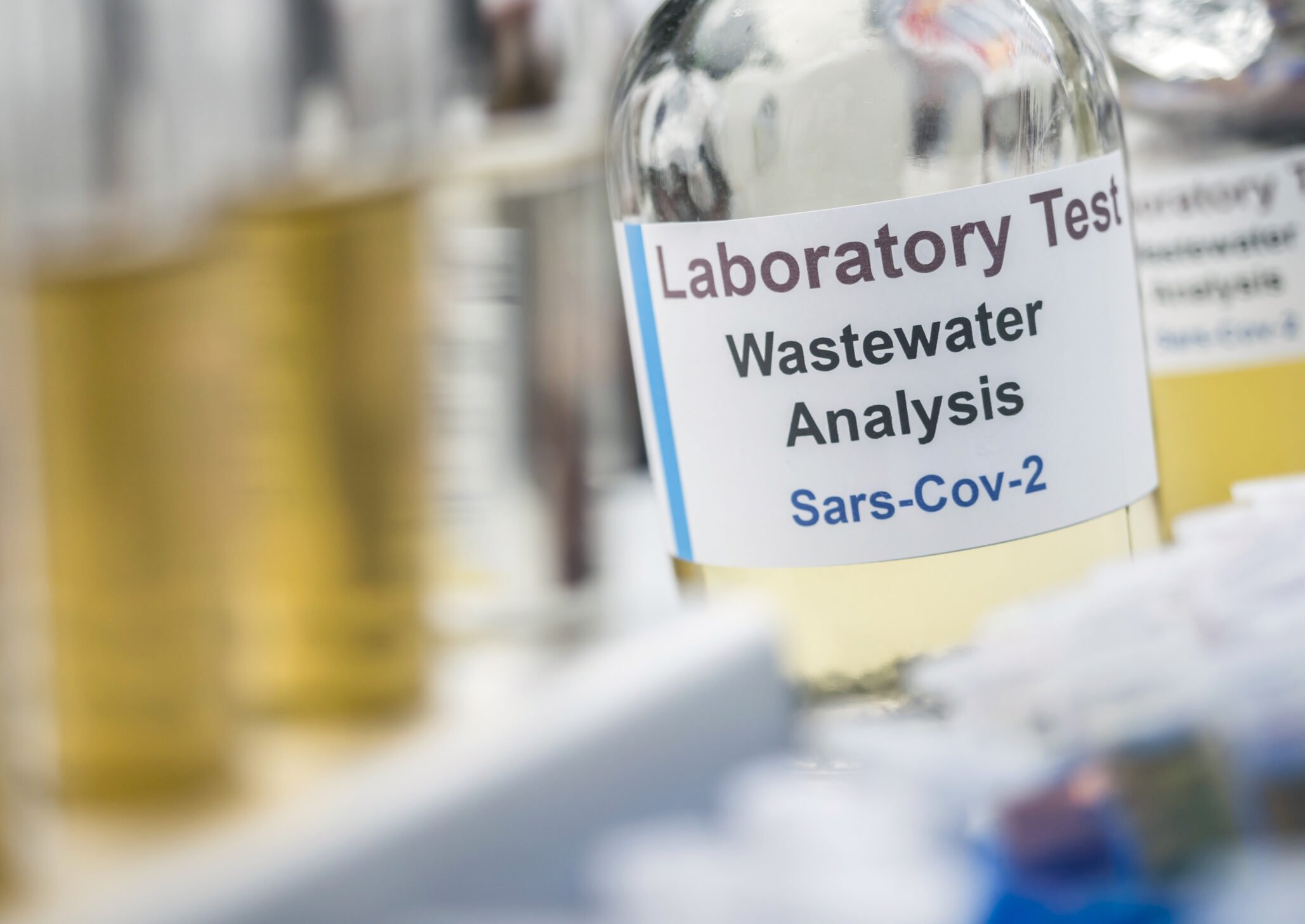
News

Up to $40 million in federal funding fuels research to revolutionize clean indoor air
Professors Krista Wigginton and Herek Clack are contributing to a groundbreaking multi-institutional project—the BRAVE initiative, funded for up to $40 million by ARPA-H—to revolutionize indoor air quality and reduce respiratory illnesses nationwide.

Krista Wigginton Receives Faculty Recognition Award
Congratulations to Krista Wigginton, Professor of Civil and Environmental Engineering and Associate Dean for Graduate and Professional Education at the University of Michigan College of Engineering, on being selected as a 2025 Faculty Recognition Award recipient! This prestigious honor highlights Dr. Wigginton's outstanding contributions in research, teaching, and service at U-M, and her unwavering dedication to advancing graduate and professional education. The award, given by Rackham Graduate School, will be formally presented at the Faculty Awards Dinner this fall.

Moving at the speed of need
How bold moves in COVID-19’s early days are powering new possibilities five years later.

Krista Wigginton Named Associate Dean for Graduate and Professional Education
At a time when engineering careers are evolving, Wigginton aims to shape graduate education to foster students who can think critically and creatively.

University of Michigan Professor Krista Wigginton Publishes a New Report on the National Wastewater Surveillance System
Wastewater surveillance for both prevalent and emerging pathogens can strengthen the nation’s infectious disease surveillance system, says a new report from the National Academies of Sciences, Engineering, and Medicine. The report offers recommendations to transition the National Wastewater Surveillance System (NWSS) from its COVID pandemic-era use to a forward-looking system that provides the highest public health value.

U-M Regents Promote CEE Professors Wigginton & Scruggs
On May 16th, 2024, the University of Michigan Board of Regents approved CEE Associate Professors Krista Wigginton and Jeffrey Scruggs for promotion to full Professors with tenure. The promotion comes after each professor received a recommendation for promotion from Interim Dean of Engineering Steven Ceccio on the basis of their outstanding achievements as researchers and educators.

$17.5M in CDC funding establishes the Michigan Public Health Integrated Center for Outbreak Analytics and Modeling (MICOM)
On September 19, the CDC’s Center for Forecasting and Outbreak Analytics announced funding to develop an outbreak response network that uses data to support decision makers during public health emergencies. The University of Michigan School of Public Health was selected as one of the 13 partners to receive roughly $17.5M over five years to establish the Michigan Public Health Integrated Center for Outbreak Analytics and Modeling (MICOM).

Michigan wastewater testing expanded to include flu, other viruses
A public-facing wastewater surveillance platform in Michigan has been expanded to include more types of pathogens.
The University of Michigan announced Wednesday, March 22, an update to its online dashboard to include detection of monkeypox, influenza-A, norovirus GII and respiratory syncytial virus (RSV) in Ann Arbor, Flint, Jackson, Tecumseh and Ypsilanti. The program, funded by the state health department, CDC and university, already previously tested samples for coronavirus.

Wastewater dashboard adds monkeypox, flu and more for five southeast Michigan communities
A public dashboard that tracks pathogens detected in wastewater just added monitoring for monkeypox, influenza-A, norovirus GII and respiratory syncytial virus (RSV).
The project, which has been providing information about community COVID-19 levels through wastewater monitoring since 2021, is a collaboration between researchers in civil and environmental engineering and public health at the University of Michigan.


Interdisciplinary study seeks to mitigate transmission of respiratory viral diseases such as flu and COVID-19 in children
A pair of Michigan Engineering professors will investigate the transmission of the flu and other respiratory illnesses, including coronaviruses, in child care settings. And they’ll receive some help from ferrets and child-friendly robots – not to mention a host of experts from multiple universities – along the way. They are part of a team led by Linsey Marr, Charles P. Lunsford Professor in Civil and Environmental Engineering at Virginia Tech, with $8.8 million in funding from Flu Lab, an organization that supports bold approaches to defeat influenza.

Michigan profs push 'pee for peonies' urine diversion plan
ANN ARBOR, Mich. — A pair of University of Michigan researchers are putting the “pee” in peony.
Rather, they’re putting pee ON peonies.
Environmental engineering professors Nancy Love and Krista Wigginton are regular visitors to the Ann Arbor school’s Nichols Arboretum, where they have been applying urine-based fertilizer to the heirloom peony beds ahead of the flowers’ annual spring bloom.`

Pee-cycled fertilizer to help peonies pop at Nichols Arboretum
Want to smell the fragrance of lush peonies this spring? Urine luck.
The peak bloom of the Peony Garden in the Nichols Arboretum is typically late May to mid-June. This year, the rows and rows of eye-popping flowers will be partially grown through the use of human urine.
The “pee-cycling” effort is part of University of Michigan research that promotes and works to destigmatize urine-based fertilizer over fecal-infused ones.

Team of researchers led by Virginia Tech seeks to mitigate flu and other respiratory viruses for children in indoor environments
Linsey Marr, the Charles P. Lunsford Professor in Civil and Environmental Engineering, is leading a team of researchers from the University of Michigan, the University of Pittsburgh, Emory University, and Georgetown University to investigate the transmission of flu in child care settings. Their project, MITIGATE FLU, which stands for Multidisciplinary InvesTIGation to Ease inFLUenza, received $8.8 million in funding from a grant through Flu Lab, an organization that supports bold approaches to defeat influenza. Marr said the team hopes to understand how behavioral and environmental factors affect transmission rates and identify the most effective interventions.

N95 mask disinfection: New evidence on how hospitals can effectively recycle key PPE
First-of-its-kind study examined multiple pathogens, as well as filtration and fit.

More responsive COVID-19 wastewater test developed
A new wastewater testing approach developed by researchers at the University of Michigan and Stanford University is capable of better detecting viral infection patterns in communities, and could prove a crucial step forward in an informed public health response as the pandemic continues.

Tracking COVID-19 with wastewater
Wastewater testing captures the rise and fall of novel coronavirus cases in a mid-sized metropolitan region.

A conversation about SARS-CoV-2 with Prof. Krista Wigginton and Prof. Tamar Kohn
Profs. Wigginton and Kohn joined Kris McNeill for a teleconference to discuss SARS-CoV-2. All three are working from home, Wigginton in Palo Alto (on sabbatical at Stanford), Kohn in Bern, and McNeill in Zurich. Prof. Wigginton is an Associate Professor of Environmental Engineering at the University of Michigan and Prof. Kohn is a Professor of Environmental Engineering at EPFL. Both are experts on the inactivation of viruses.

Environmental engineers at Stanford discuss how to identify factors affecting COVID-19 transmission
Stanford professor Alexandria Boehm and visiting scholar Krista Wigginton describe potential transmission pathways of COVID-19 and their implications.

A sewage surveillance effort to track COVID-19
Could a community’s wastewater give an early warning of the spread of COVID-19?
With a rapid response grant from the National Science Foundation, a research team from the University of Michigan and Stanford University is exploring this and other questions about how the novel coronavirus behaves and moves through the environment.